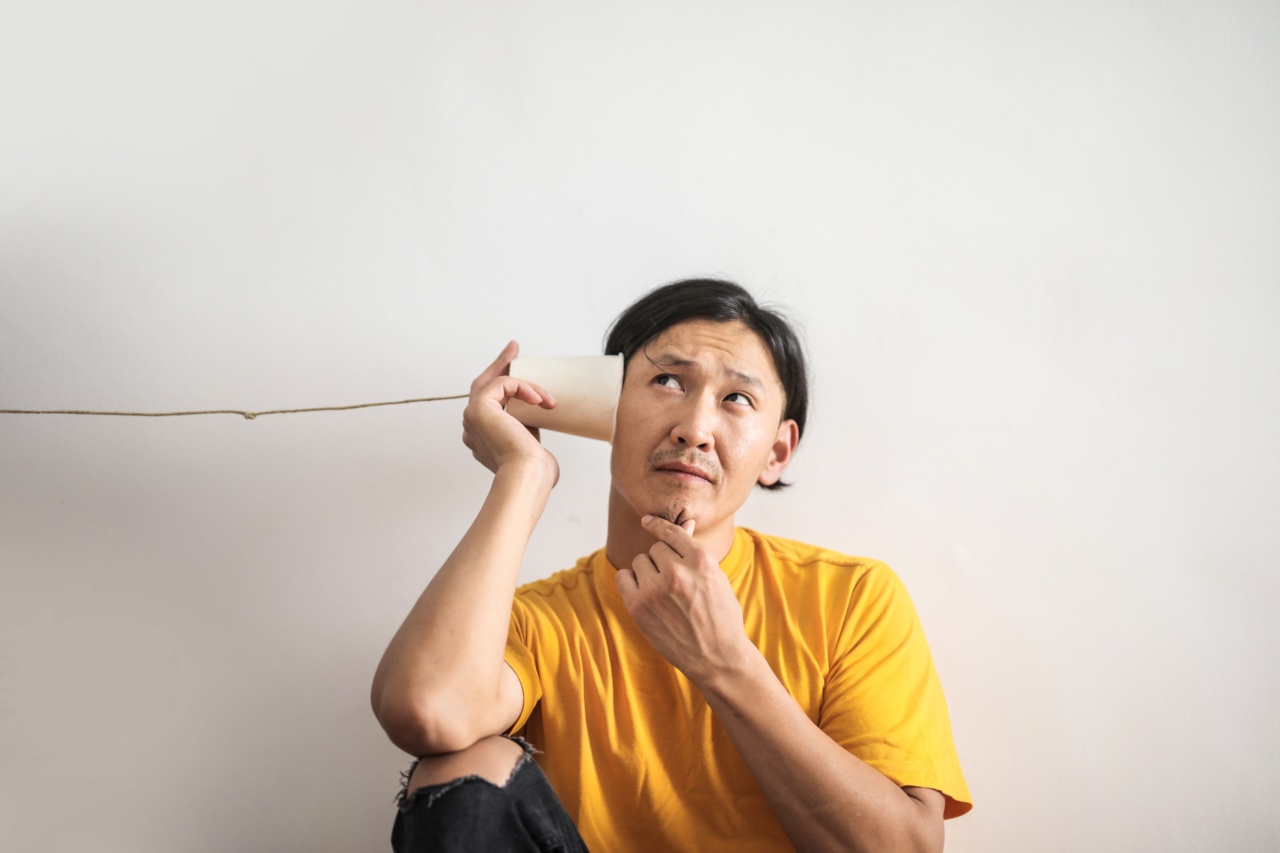Our ability to hear and process sounds is an essential part of life. It allows us to communicate, learn, and enjoy the world around us. However, hearing problems can arise due to various factors, including injuries.
In this article, we will explore the connection between hearing problems and injuries, covering different types of injuries that can affect our hearing and potential treatment options.
Types of Injuries That Can Cause Hearing Problems
1. Acoustic Trauma:.
Acoustic trauma refers to damage to the ear caused by exposure to loud noises. This can occur suddenly, such as an explosion, or gradually over time due to long-term exposure to loud sounds.
Prolonged exposure to loud music, machinery noise, or construction noise can all contribute to acoustic trauma.
2. Head Injuries:.
Head injuries can have devastating effects on our hearing as the delicate structures of the inner ear may be damaged.
Traumatic brain injuries, concussions, or skull fractures can lead to both temporary or permanent hearing loss or tinnitus (ringing in the ears).
3. Barotrauma:.
Barotrauma occurs when there is a sudden change in pressure, such as during scuba diving or flying in an airplane. Rapid pressure changes can damage the eardrums, cause fluid build-up, and affect hearing.
Symptoms can range from mild discomfort to severe pain and hearing loss.
4. Foreign Objects:.
Insertion of foreign objects into the ear canal can cause damage to the ear and lead to hearing problems. Common objects include cotton swabs, hairpins, or even insects.
It is crucial to refrain from inserting anything into the ear canal to avoid potential injuries.
5. Temporal Bone Fractures:.
Temporal bone fractures typically occur as a result of high-impact accidents, such as car collisions, falls, or sports injuries. These fractures can damage the tiny bones and structures within the ear, resulting in hearing loss or imbalance issues.
Treatment Options for Hearing Problems Caused by Injuries
1. Medications:.
In some cases, medications may be prescribed to manage the symptoms associated with hearing problems caused by injuries. These medications may aim to reduce inflammation, alleviate pain, or prevent further damage to the ear.
It is essential to consult a healthcare professional for the appropriate medication and dosage.
2. Surgery:.
Surgical intervention may be necessary to repair severe damage to the ear caused by injuries.
Procedures such as tympanoplasty (reconstruction of the eardrum), ossiculoplasty (reconstruction of the tiny bones in the ear), or cochlear implant surgery (for severe hearing loss) can help restore or improve hearing ability.
3. Hearing Aids:.
Hearing aids are commonly recommended for individuals experiencing hearing loss due to injuries. These devices amplify sounds and help individuals hear more clearly.
Modern hearing aids are discreet, comfortable, and offer various features to enhance the overall hearing experience.
4. Assistive Listening Devices:.
Assistive listening devices (ALDs) are devices designed to improve hearing in specific situations. Examples include personal amplifiers, loop systems, or FM systems.
ALDs can be used in conjunction with hearing aids for optimal hearing assistance in noisy environments.
5. Communication and Rehabilitation Services:.
Injury-related hearing problems can have a significant impact on an individual’s ability to communicate effectively.
Speech therapy, auditory rehabilitation, and counseling services can be valuable in assisting individuals in adapting to their hearing loss and developing strategies for effective communication.
Preventing Hearing Problems Caused by Injuries
While certain injuries are unavoidable, there are measures that can be taken to reduce the risk of hearing problems:.
1. Hearing Protection:.
Wearing appropriate hearing protection, such as earplugs or earmuffs, in environments with loud noise can significantly reduce the risk of acoustic trauma.
This is particularly important for individuals working in noisy industries or attending loud events consistently.
2. Safety Precautions:.
Following safety guidelines and using protective gear is crucial to prevent head injuries. This may include wearing helmets during sports activities, using seat belts in vehicles, and implementing proper safety practices at work.
3. Avoiding Foreign Objects:.
Avoid inserting any objects into the ear canal to minimize the risk of injury. If any foreign object does enter the ear accidentally, it is essential to seek immediate medical attention rather than attempting to remove it oneself.
4. Equalizing Air Pressure:.
When engaged in activities such as scuba diving or flying, it is crucial to learn proper techniques for equalizing air pressure. This helps to prevent barotrauma and potential hearing damage.
Conclusion
Hearing problems can be profoundly impactful, affecting communication, emotional well-being, and overall quality of life. Understanding the connection between hearing problems and injuries is essential for prevention and prompt treatment.
By taking appropriate precautions, seeking immediate medical attention when needed, and utilizing available treatment options, individuals can protect their hearing and minimize the long-term effects of injuries.





























